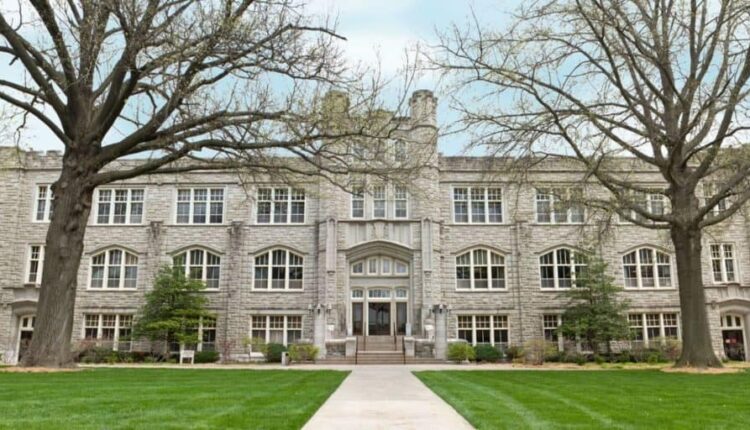University of Central Missouri: Congresswoman Hartzler Gains Firsthand Insight into Role, Vision for UCM’s Farms
Representative of Missouri’s Fourth Congressional District Vicky Hartzler had an opportunity to meet with students, faculty and staff at the University of Central Missouri on Aug. 23 to learn more about the institution’s role in the agriculture industry and vision in helping to prepare graduates ready to work in this professional field.
Hartzler, who has a master’s degree in education from UCM, stopped at her alma mater during a week that includes visits to agriculture business and educational facilities within her district. She arrived at the university in the early afternoon following a tour of a family owned meat processing company near Clinton, and plans to visit more agriculture-related sites later in the week.
“Every August I enjoy coming back and traveling the district to see some of the latest things going on in agriculture. It’s our state’s No. 1 industry and, of course, I’m happy to represent them on the House Agriculture Committee in Washington, D.C.,” she said.
Her visit to UCM began with an informal meeting with a small group of university students, which was followed by tours of the UCM Farm on Mitchell Street and the Prussing Farm east of Warrensburg city limits. UCM alumnus Travis Hume, director of university farms, conducted the tour of the university’s main agricultural properties, which provide hands-on learning opportunities for students while contributing to the state’s agriculture economy. He was accompanied by David Pearce, executive director for governmental relations; Jeff Robertson, dean of the College of Health, Science and Technology; and Brandon Nevils, a UCM alumnus who serves as farm manager. University President Roger Best and First Lady Robin Best also met with the group along with three members of Hartzler’s staff, Wyatt Fletcher, a staff assistant in Washington, D.C., who is also a UCM student; Madelyn Derks, agriculture leadership assistant in Washington, D.C.; and Ryan Bardot, field representative from the representative’s office in Harrisonville.
During the afternoon, Hume briefed the group on the history of UCM’s agriculture facilities, including the generous donation of the Prussing Farm by Natalie (Prussing) Halpin. He spoke about how the university was seeking federal grant funding to pursue facilities improvements at both farms that would not only elevate opportunities to better prepare students seeking agriculture careers, but would serve groups that range from elementary students, 4-H and FFA members to other local, state and national organizations that are looking for host sites for agriculture-related activities.
Hume said the university has a master plan for facilities upgrades. The vision for these initatives includes the creation of a storefront at the farm on Mitchell Street to sell products grown at the UCM facilities, and improvements at the Prussing Farm that range from better livestock handling facilities to shooting range enhancements that will serve training and competitive needs. He also spoke about the university’s engagement in Heroes to Hives, a national program that teaches military veterans about beekeeping, and UCM’s involvement with Maple Grove Elementary School in Warrensburg in a program that teaches chldren where food comes from and how it is grown.
At the Prussing Farm, Congresswoman Hartzler had the opportunity to meet with a group of six students enrolled in the Natural Resource Economics course taught by Michelle Santiago, a professor of agriculture who also serves as the new chair of the UCM Department of Agriculture. While speaking to the group and offering opportunities for student questions, Hartzler provided insight into her work related to legislation that affects farmers. She noted the importance of providing a voice on issues where government may be creating a burden on agriculture enterprises unnecessarily.
In concluding the tour, Hartzler commented about her experience at UCM. She noted her interest in learning about the different projects that are underway at the farms and efforts to improve them to better serve students who will be seeking careers in agriculture.
“The work being done here is really important for our future as a state. Right now our average age of a farmer is almost 60 years old,” she said. “We need young people to step up who have an interest and experience with agriculture to take over the reins to move us forward, and to help us feed the world.”
She added, “We’re going to have to double the amount of production to meet the world population in just a few short years, so the education they are getting here is going to help them have both the knowledge and experience to move our industry forward and to feed the world in the future.”

